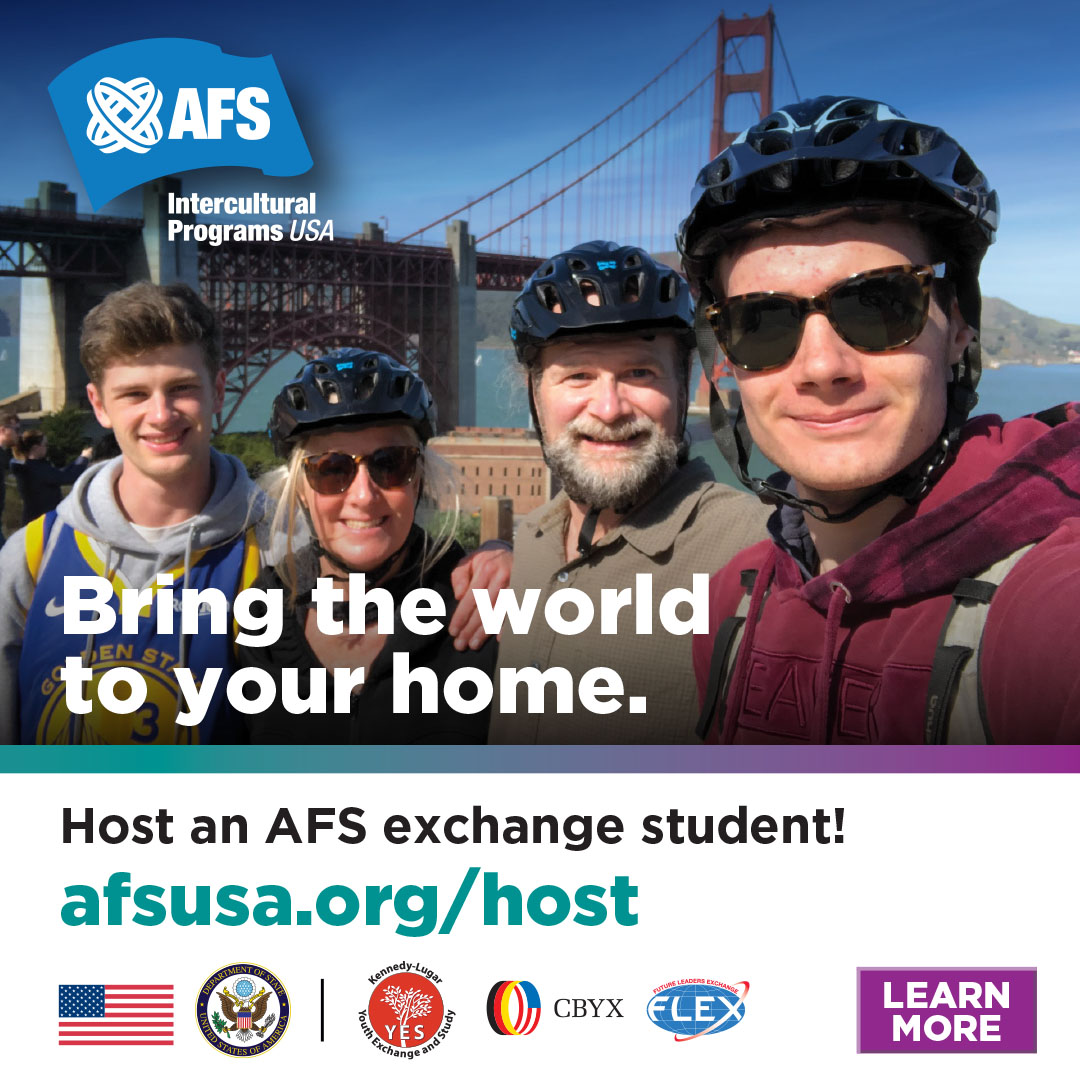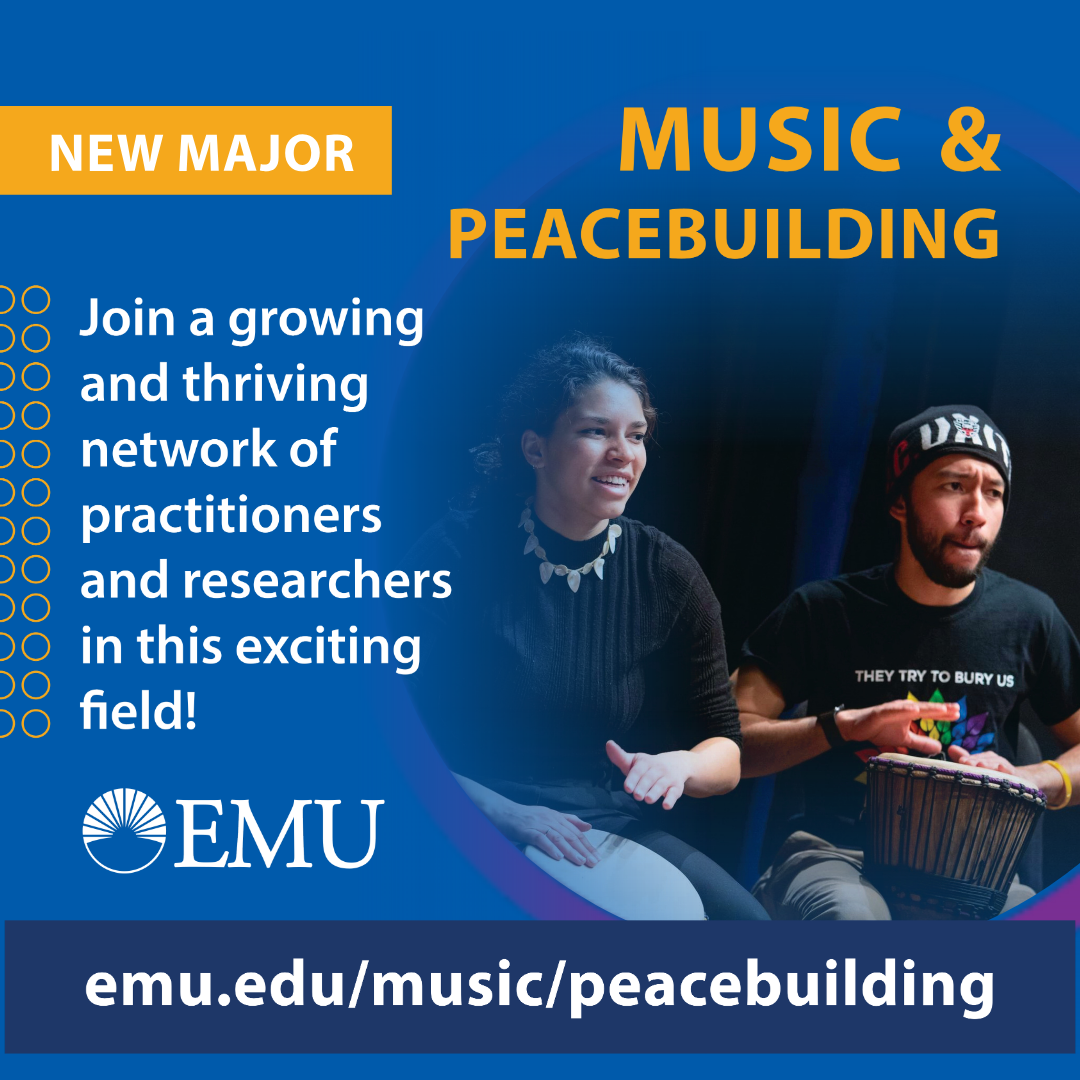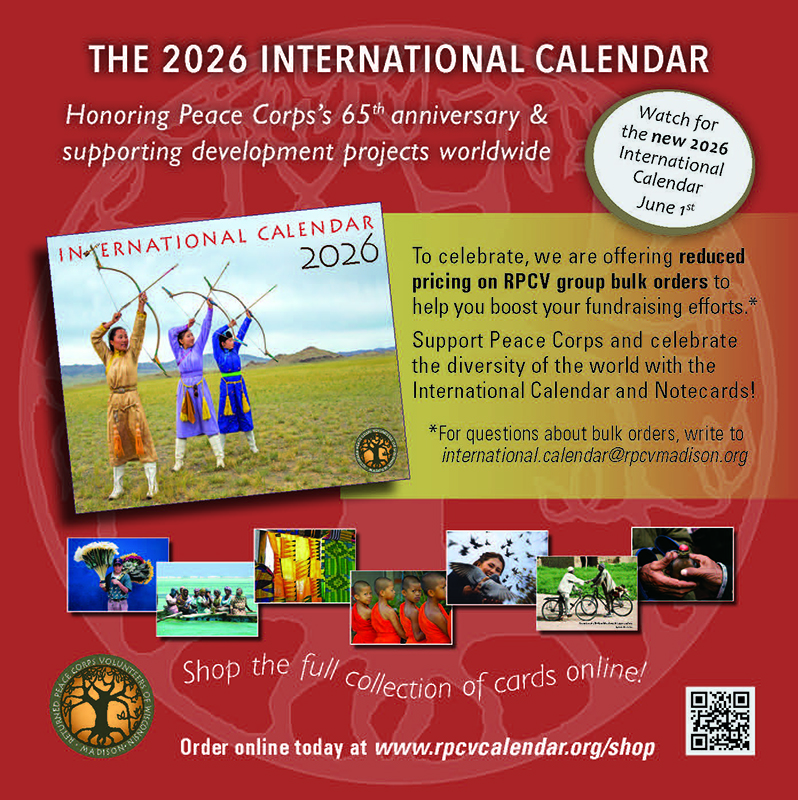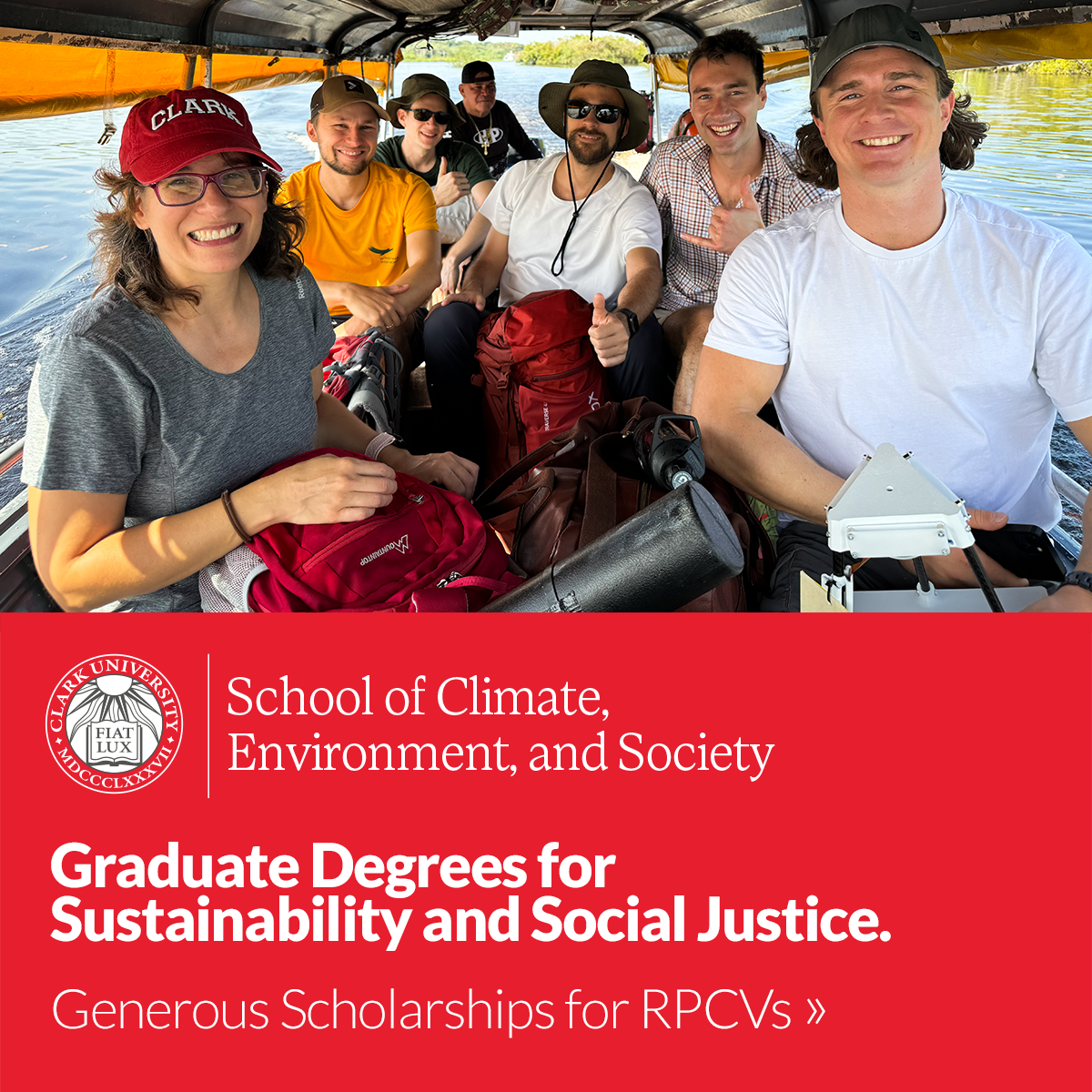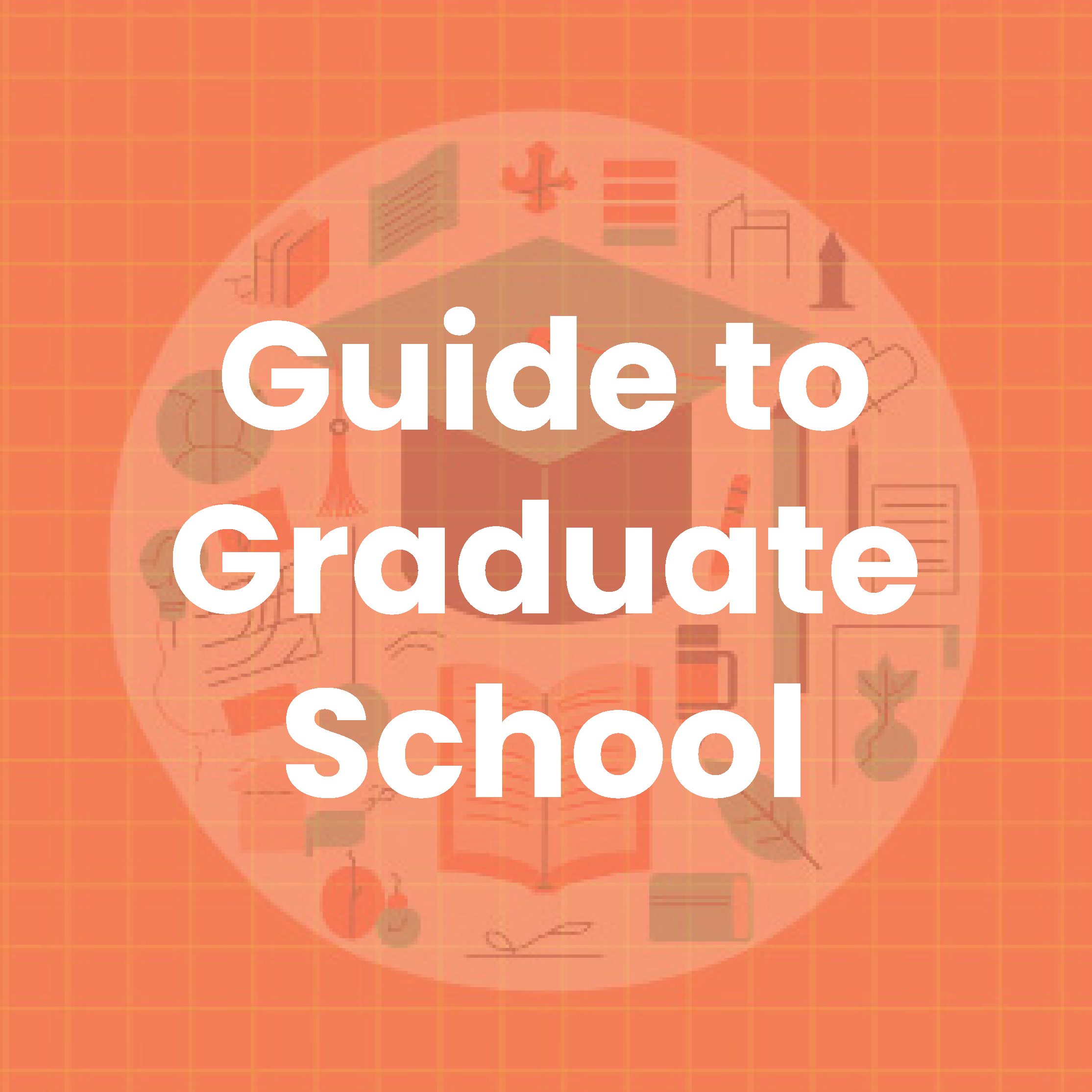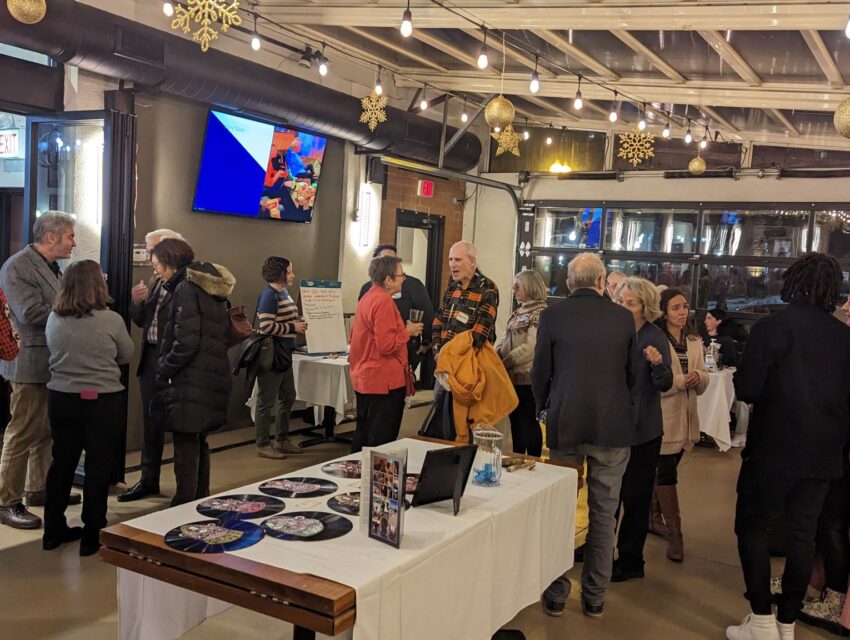
Location, Location, Location
RPCV groups plant their flags across the map
It’s early December in northern Florida, and the parking lot at John Wesley United Methodist Church is filled with shoppers from Tallahassee and the surrounding Big Bend region. They walk the aisles learning about the 20-plus not-for-profit organizations seeking donations to support their work with the neediest. The annual Alternative Christmas Market has been going strong for the past 36 years, and the Returned Peace Corps Volunteers of North Florida (RPCV/NF) has been a key partner in this effort for the past two decades. Group members volunteer to host a table and speak with the public about Peace Corps while also soliciting donations to support projects run by Volunteers currently in the field, primarily through the Peace Corps Partnership Program. These projects include bicycle maintenance in Malawi and the creation of organic gardens in the Dominican Republic. They also sell international calendars produced by RPCVs of Wisconsin-Madison. The RPCV/NF group has raised over $10,000 for Peace Corps projects in the field since it began participating in the market, which also provides an opportunity for RPCVs to connect with one another, continue serving their communities, and spread the word about the important mission of Peace Corps.
Nationally, scores of RPCV groups are bringing Peace Corps values to the communities they live in through similar activities. These include social gatherings and cultural outings, local service initiatives, fundraising to support domestic and international projects, informational events for potential Peace Corps applicants, career counseling, and advocacy initiatives, to name just a few.
These regional groups are based in the places RPCVs have returned to after their service—from major metropolitan areas to small cities and rural towns. A number of the larger groups are incorporated as 501(c)(3) nonprofit organizations, while others are informal, allowing RPCVs a place to convene, share stories, and continue to do good.
The values of these groups are well summarized by RPCVs of Wisconsin-Madison’s mission statement, which puts forth three clear objectives shared by most RPCV groups: 1) to support a social network for Returned Peace Corps Volunteers, promoting cultural understanding and awareness of international issues; 2) to support the Peace Corps’ mission and active Volunteers; and 3) to collaborate and volunteer with nonprofit organizations aligned with our goals.
Fostering Creativity and Innovation in Programming
RPCVs of Wisconsin-Madison has been one of the most active and creative associations for years, and is known especially for its production of an international calendar. The calendar, as well as the postcards and other materials the group prints and distributes, helps support other affiliates in their fundraising for local and international projects while serving as an educational resource for the community. Furthermore, it gives RPCVs an opportunity to have their most meaningful photos published and distributed to a wide audience. Not only has this project embodied the essence of the Third Goal of Peace Corps, “to help promote a better understanding of other peoples on the part of Americans,” but over three decades it has generated more than $1.5 million in sales, which has been used to support development projects at home and abroad.
Similarly, the Boston Area Returned Peace Corps Volunteers (BARPCV) group runs an annual photo contest designed to illustrate Peace Corps Volunteers’ experiences. Every year, RPCVs send in dozens of colorful pictures depicting different cultures, projects, and friendships. The BARPCV board screens finalists, whose submissions are then printed and displayed in large format at Simon’s Coffee Shop near Harvard, Tufts, and Lesley Universities, which helps to generate awareness about Peace Corps among students. During the display period, fellow RPCVs and the public at large vote on the winners, and a lunch is held to give out awards.
Local Service Opportunities
RPCV regional affiliate groups also engage with their communities by supporting local needs. The Minnesota Returned Peace Corps Volunteers (MNRPCV) group’s Community Service Committee coordinates volunteer participation in monthly community service events, including packing food for local food banks, cooking for a residential program for moms and their kids, working in a public park, and packing books for kids who might not have easy access to reading materials. They collaborate with groups such as Mano a Mano, Second Harvest Heartland, Jeremiah Program, Bridging, Adopt a Highway, Habitat for Humanity, and Literacy Minnesota.
Another group, the Santa Cruz and Monterey chapter of the Northern California Peace Corps Association (NorCalPCA), partnered in a service event—a cleanup at McAbee Beach in Monterey—initiated by the Middlebury Institute of International Studies RPCV Club and the Monterey chapter of the Surfrider Foundation.
“The beach cleanup event that we organized with the Surfrider Foundation during Earth Week brought together friends and fellow RPCVs to help out in the local community. It was a way for us to give back and connect with others over shared values of service and friendship,” said Nadia Pshonyak (North Macedonia 2016–18) of NorCalPCA. Boston Area Returned Peace Corps Volunteers has worked with the regional nonprofit Cradles to Crayons, a group that is dedicated to helping children experiencing what the group
calls “clothing insecurity,” for over a decade. RPCVs work together in small teams at the nonprofit’s warehouse, known as the Giving Factory, where they inspect, sort, and match clothing items for local children in need.
“It’s a roll-up-your-sleeves event—and a great way to connect with other Peace Corps alums,” said Brian McBride (Malaysia 1981–83), vice president of BARPCV. “Buttons and hats let other volunteers and staff know that the Peace Corps’ mission of community service continues long after overseas service ends.”
Building Community
Most of the regional affiliate groups host social events like annual picnics, happy hours, restaurant nights, group trips, and the like, where former Volunteers can swap stories with other RPCVs, share local employment and service opportunities, and provide mentoring for recently returned Volunteers. They also organize send-offs and welcome-home events for new Volunteers and RPCVs.
Other groups have helped provide guidance and mentoring for Volunteers when they return from service. That was crucial for many PCVs who were evacuated during the COVID-19 pandemic and needed to find employment after suddenly finding themselves back home.
“We are especially proud of a new mentoring program we are launching imminently, to coincide with the first cohort of post-pandemic returning Volunteers,” said Michael Svetlik (Poland 1992–94), president of Returned Peace Corps Volunteers of Washington, D.C. (RPCV/W).
Social and cultural events organized by groups often take place in conjunction with service activities and promote Peace Corps values. The RPCV/NF group, for example, participates in the annual Springtime Tallahassee Festival by setting up a display alongside numerous other local not-for-profit agencies and organizations. Interacting with festivalgoers allows them to spread the word about Peace Corps and reinforce its mission.
Last November, RPCV/W partnered with comedian Rola Z to raise money for Doctors Without Borders. Aside from fundraising, the event aimed to create a space for the community to come together in solidarity with Jewish, Arab, Muslim, interfaith, and multicultural performers for a celebration of human rights through music and humor.
Similarly, NorCalPCA hosted a Ukrainian Sunflower Festival in 2023 to support the Ukrainian people suffering in the wake of the country’s invasion by Russia.
Advocacy
RPCV groups often advocate for issues related to Peace Corps service. This can include writing editorials and emails, calling and visiting local representatives, and traveling to Washington, D.C., for Peace Corps Week. Many groups send delegates to NPCA’s Advocacy Day, when RPCVs speak directly with their legislators and staff about their experiences, and emphasize the benefits of supporting ongoing funding for Peace Corps.
RPCVs of Wisconsin-Madison even visited Capitol Hill in March for the 2024 Advocacy Day in support of Peace Corps legislation, despite the fact that their state already has four congressional representatives who wholeheartedly support Peace Corps.
“When [Volunteers] return, they establish these groups as a way to continue to serve their country,” said Carla Brown-Ndiaye (Comoros Islands 1992–94), NPCA’s new Director of Partnerships and Operations. “They are the voice for the countries and causes they represent and care about. They are changemakers.”
Mark Mahoney (Ecuador 1975–77, Chile 1978–80) is a retired State of Florida employee and a columnist for the Tallahassee Democrat.
Related Articles
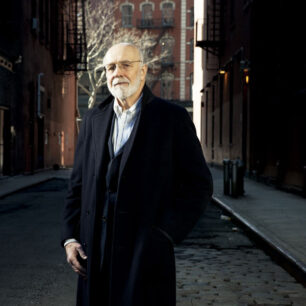
Made in America
Charlie Clifford (Peru 1967–69) is the founder of Tumi Inc., a global travel luggage brand, as well as Roam Luggage.…
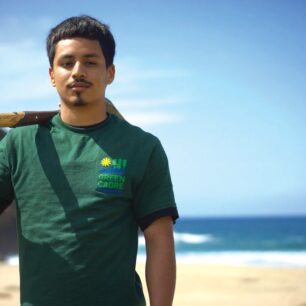
“Bigger Than Peace Corps”
California Service Corps is the largest state-based service program in the U.S. , with more than 10,000 volunteers across the…
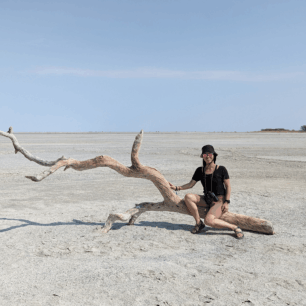
Signal Boost
The digital world is awash in voices seeking monetary reward or improved social status, as the online acronym goes, IRL…
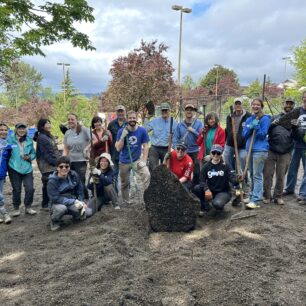
Garden of Refuge
As part of our commitment to continued service, the Seattle Peace Corps Association (SEAPAX) is partnering with World Relief Western…

